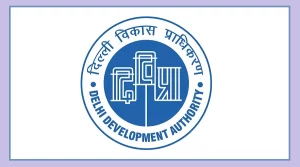The government has become stricter about objectionable content on OTT platforms.
Recently, the Ministry of Information and Broadcasting introduced new guidelines after popular podcaster Ranveer Allahabadia made obscene and inappropriate comments in a show.
The government has clearly stated that OTT platforms must follow Indian laws and ensure their content complies with regulations.
Supreme Court’s Involvement in the Matter
This decision came after an FIR was filed against Ranveer Allahabadia for spreading obscenity.
He approached the Supreme Court, which granted him interim protection on the condition that he cooperates with the investigation.
This incident sparked a nationwide debate on digital media’s freedom and limitations. In response, the government introduced stricter rules to regulate OTT content.
OTT Platforms Must Follow Laws
For some time, there have been increasing complaints about objectionable and obscene content on OTT platforms.
Members of Parliament, social organizations, and the public had urged the government to take action.
The Ministry of Information and Broadcasting has now made it mandatory for OTT platforms to comply with Indian laws.
Under the new rules, platforms must follow the IT Rules 2021, which focus on strengthening self-regulatory bodies and implementing a three-tier grievance redressal system.
Key Changes Under the New Guidelines
The government has specified that OTT platforms must avoid publishing any obscene, pornographic, or illegal content. They are required to ensure compliance with laws such as:
1) Indian Penal Code (BNS 2023)
2) Protection of Children from Sexual Offenses Act (POCSO Act)
3) Indecent Representation of Women Act, 1986
4) Information Technology Act, 2000
Additionally, platforms must implement age-based classification to protect children and teenagers from inappropriate content.
The government has also given self-regulatory bodies more power to ensure platforms follow the rules.
No Censorship, But More Responsibility
The government clarified that these rules are not meant to censor OTT content but to make platforms more responsible.
However, some digital media experts fear that these guidelines may limit creative freedom. Filmmakers and web series producers worry that such restrictions might affect storytelling.
Audience Reactions and Legal Consequences
Many viewers have welcomed these rules, believing that they will help control the increasing obscenity on OTT platforms.
Some content was being presented as entertainment but was actually promoting obscenity, making it difficult for families to watch together.
The government has warned that if any OTT platform violates these guidelines, strict legal action will be taken.
Platforms could face heavy fines, and in severe cases, they might even be blocked. If any content violates Indian laws, an FIR can be registered.
Self-regulatory bodies have also been instructed to monitor platforms more closely and remove controversial content as quickly as possible.
A New Era for OTT Platforms
With these new guidelines, OTT platforms will now have to ensure that their content is legally and socially appropriate.
Writers and producers must keep these rules in mind while creating web series and films.
While this move assures audiences of more responsible content, it remains to be seen how the government will maintain a balance between regulation and creative freedom.

























